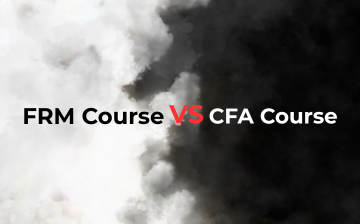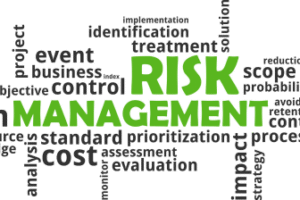
FRM Course vs CFA: Which Is Better for a Career in Finance?
FRM Course vs CFA:
Which Is Better for a Career in Finance?
If you are serious about building a career in finance, you have probably thought about professional qualifications. Two of the most popular choices are the FRM course and the CFA program. Both are globally recognized and can take your career to the next level. However, the right choice depends on your interests, career goals, and how much time and money you can invest.
In India, finance aspirants also seek training support from specialized institutes like Global Risk Management Institute (GRMI) in Gurugram. GRMI is known for its focus on risk education and its strong industry connections. These help candidates prepare for demanding certification goals.
Before we compare the FRM course and CFA program, let’s first understand what FRM is.
What Is FRM?
FRM stands for Financial Risk Manager. It is a global certification recognized by banks, investment firms, and corporations. The FRM course focuses on managing financial risks. Students learn about market risk, credit risk, operational risk, and investment risk. This certification is ideal for careers in banking, trading, asset management, and risk analysis.
FRM Course Overview
The program covers the fundamentals of risk management, quantitative analysis, financial markets, and valuation models. It also includes advanced topics such as market risk, credit risk, operational risk, and current financial issues. The course requires intensive study and practical application of concepts.
What Is CFA?
CFA stands for Chartered Financial Analyst. It is offered by the CFA Institute in the USA. The CFA program focuses on investment analysis, portfolio management, and financial strategy. It suits careers in investment banking, equity research, and corporate finance.
CFA Course Overview
The program includes three levels. The first level covers investment tools, ethics, and quantitative methods. The second focuses on equity, fixed income, and derivatives. The third emphasizes portfolio management, wealth planning, and investment strategies.
Key Differences Between FRM and CFA
Featured
FRM
CFA
Main Focus
Risk Management
Investment management
Time to Complete
About 1 Year
2.5 to 3 years
Work Experience
2 years required
4 years required
How GRMI Can Help With FRM Preparation
If you choose the FRM path, strong preparation is crucial. This is where GRMI stands out. The institute offers advanced programs in enterprise and financial risk. You learn directly from industry experts and work on real projects with top companies. The practical learning approach prepares you not only for certification but also for real-world challenges.
Many students at GRMI go on to build careers in banks, consulting firms, and multinational organizations.
Which One Should You Choose?
Choose FRM if:
✔ You want to specialize in risk analysis, market risk, or regulatory compliance
✔ You prefer a course that is faster and more affordable
Choose CFA if:
✔ You want a broader career in investment management or research
✔ You are ready for a longer and costlier commitment
Can You Do Both?
Yes, many finance professionals hold both certifications. Having FRM and CFA makes you highly competitive. However, it requires more time, money, and effort. Starting with one certification and adding the other later is a wise approach.
Career Opportunities After FRM and CFA
After FRM, you can work in:
✔ Risk departments at banks
✔ Hedge funds and asset management companies
✔ Consulting and advisory firms
✔ Compliance and regulatory roles
After CFA, you can work in:
✔ Portfolio management
✔ Wealth and investment advisory
✔ Equity and fixed income research
✔ Corporate finance
Conclusion
Both FRM and CFA are excellent choices for building a finance career. The best option depends on your interests and goals. If you want deep expertise in risk, FRM is ideal. If you want a broader investment career, CFA is the right choice.
In India, if you decide to pursue the FRM course, GRMI is one of the best places to prepare. It offers industry exposure, practical learning, and mentorship from experienced professionals.
The skills you gain at GRMI will help you not just pass the exams but also excel in real-world finance roles. Whether you choose FRM, CFA, or both, commitment, proper preparation, and continuous learning will open doors to rewarding finance careers.
You may also like

Best Short Term Courses in IT for Freshers

What is the Best Course in Risk Management in India?


